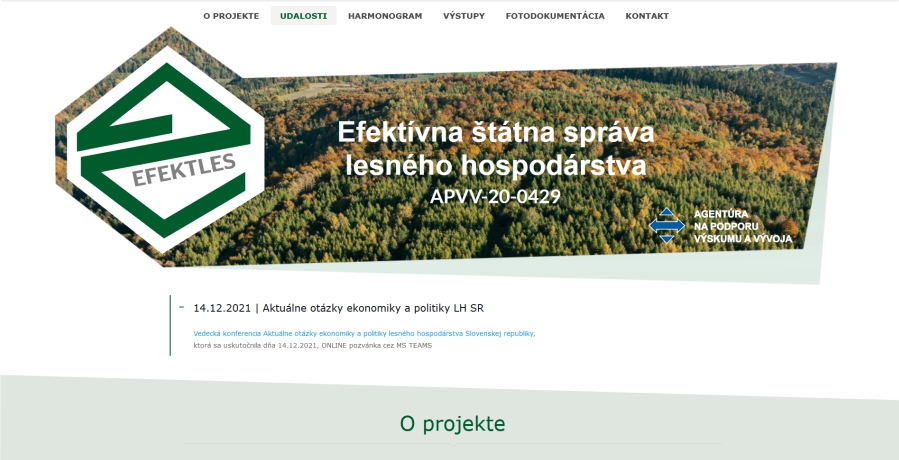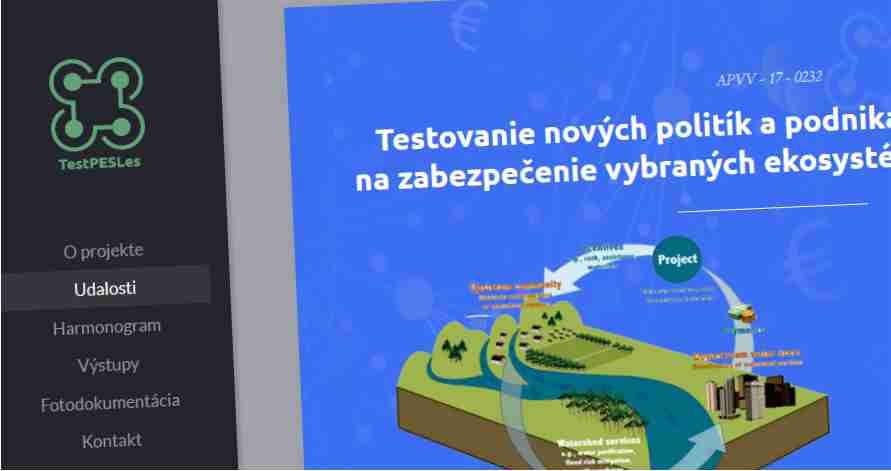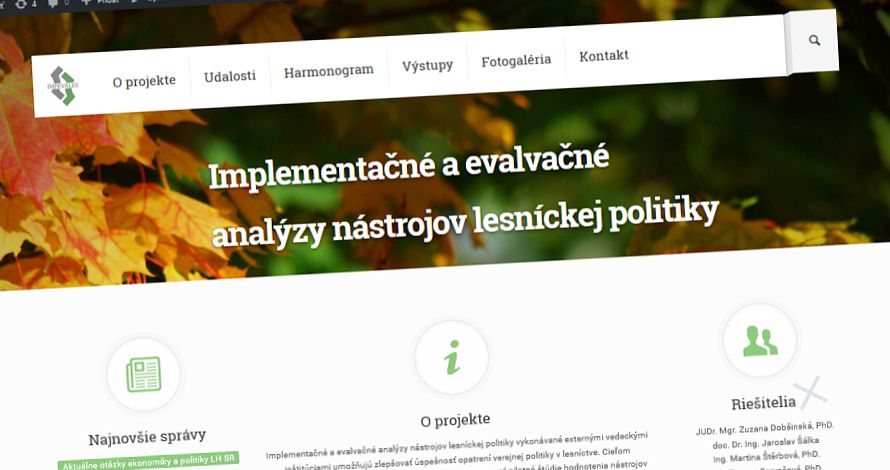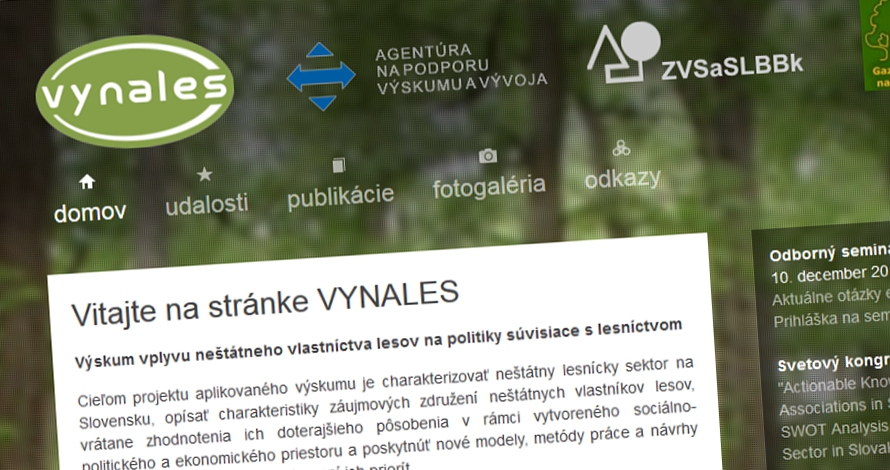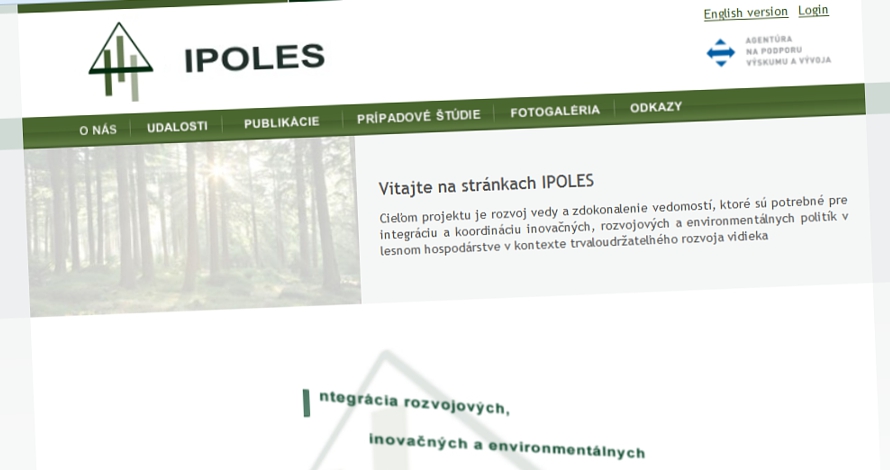September 2022
Annotation of the project
S ocietal changes induced by COVID-19 pandemic accelerated increased trends in demand on cultural ecosystem services, such as recreation, tourism, that have positive impact on human mental health. The basic framework for the development of this area is granted by the EU´s biodiversity strategy for 2030 (COM (2020) 380). Well-functioning ecosystems are extremely important for improving the stability of human organism and extension of future diseases. Thus, the EU set the goal to invest into these areas, that will have essential importance for economic recovery of Europe, caused by COVID-19 pandemic. Starting from these considerations, the goal of the proposed project is marketing modelling of the mix of the forest ecosystem services in chosen forest enterprises portfolios according to the three scenarios, specifically economic, ecological and the business as usual. The economic benefits for forest enterprises will be quantified according to predefined forest management system, that belongs to each scenario.
Scientific goals of the project
The analysis of current state of supply of FES in portfolios of chosen forest enterprises, that have different ownership (state and non-state).
The predefinition of scenarios (economic, ecological, BAU) to the ensuring of FES related to matched forest management systems.
The marketing modelling of the mix of FES in chosen forest enterprises portfolios according to matched forest management systems, related to quantifying of the economic benefits for forest enterprises.
The synthesis and dissemination of the findings of proposed scientific project with regard on results of foreign projects in scope of international scientific cooperation.
International scientific cooperation

The project involves international cooperation with scientific institutions and universities in chosen European countries, that focus on economic of natural resources and theories of ecosystem services. The cooperation will serve for comparative analysis of the case studies and their summarisation. Project partners include, namely: a) Natural Resources Institute Finland LUKE (prof. Dr. Anne Tolvanen); b) University of Göttingen in Germany, Faculty of Forest Sciences and Forest Ecology; Department of Forest Economics (Prof. Dr. Bernhard Möhring); c) Czech University of Life Sciences Prague, Faculty of Forestry and Wood Sciences, Department of Forestry and Wood Economics (prof. Ing. Luděk Šišák, CSc.); and d) Transilvania University of Brașov, Faculty of Silviculture and Forest Engineering (prof. Dr. Borz Stelian Alexandru). It is necessary to emphasize that the researchers from the proposed project actively cooperate with the experts from the listed scientific institutions and universities.
Project solution schedule
Stage 1
The analysis of current state of supply of cultural FES in portfolios of chosen forest enterprises with different ownership. This stage is divided into two steps. Firstly, it is important to analyse the current state of overall potential timber supply for market based on growing stock of specific forest stands intended for principal felling according to forest management plans. Secondly, it will be necessary to assess the supply potential of cultural forest ecosystem (recreation and tourism) services for domestic market.Stage 2
The predefinition of three scenarios (economic, ecological, BAU) to the with goal to predict provisioning of ES related to matched forest management systems. The definition of scenarios will be based on determining the ratio of the specific FES in the portfolio of enterprises in relation to different forest management systems. To quantify the benefits of each scenario, information will be collected: The estimation of costs ration for each scenario (e.g., silviculture costs, harvesting costs, operating costs, and investments to providing cultural ecosystem services). The estimation of earnings for each scenario (e.g., planned harvesting volumes, price of raw woods assortments, expenses of individuals and households for tourism and recreation in chosen location).
Stage 3
The marketing modelling of the mix of FES in the portfolios of chosen forest enterprises according to matched forest management systems, regarding quantifying the economic benefits for forest enterprises. Marketing modelling of the ESL mix in the portfolio of selected forest enterprises will be carried out with the support of the growth simulator SIBYLA (software product of the Faculty of Forestry), the output of which will be production possibilities of forest stands at given forest enterprises about defined scenarios of forest management systems. The fourth stage will proceed as follows: a) evaluation of economic benefits of scenarios in forest enterprise portfolios using marketing decision models
b) evaluation of impact of each scenario on forest enterprise management.
Stage 4
The comparison of the impact of the forest ownership on the value of forest ecosystem services. Chosen forest enterprises will have state and non-state form of the ownership. The target is to assess the impact of the ownership form on the quality of the management of the forest enterprises that could result in the economic benefit of individual scenarios. Each forest enterprise will represent one case study.Stage 5
The Comparative analysis of project results with other case studies from research and educational institutions in selected EU countries (Germany, Czech Republic, Finland, and Romania). Comparative analysis is a comparison of the results of proposed scientific project with similar studies, specifically the comparison of the results of research projects, which are carried out on a similar methodological basis. Some specifics of individual market parameters in the given countries will be considered, such as price of wood assortments, disposable income of individuals or households, prices of fuels, prices of accommodation facilities, etcStage 6
Synthesis and dissemination of project´s results regard to output of foreign scientific projects within international scientific cooperation during the whole duration of the project. It will include active participation on national and international conferences, as well as the organisation of workshop and seminars for management level of forest enterprises and other relevant stakeholders. In case of anti-pandemic measures the workshops will be organised online.
The timetable
1. year: The stage 1 and stage 2
Presentation of partial results (conferences, scientific papers)
2. year: The 3 – 5
Preparation and publication of the results of the 1st and 2nd stage in the impacted journals. Presentation of partial results of stages 3. - 5.
3. year: Finalisation of the project activities
Dissemination of the results of the 3rd - 6th stage. Preparation and publication of results in professional journals (CC, WOS, Scopus) and participation in foreign conferences.
Research team
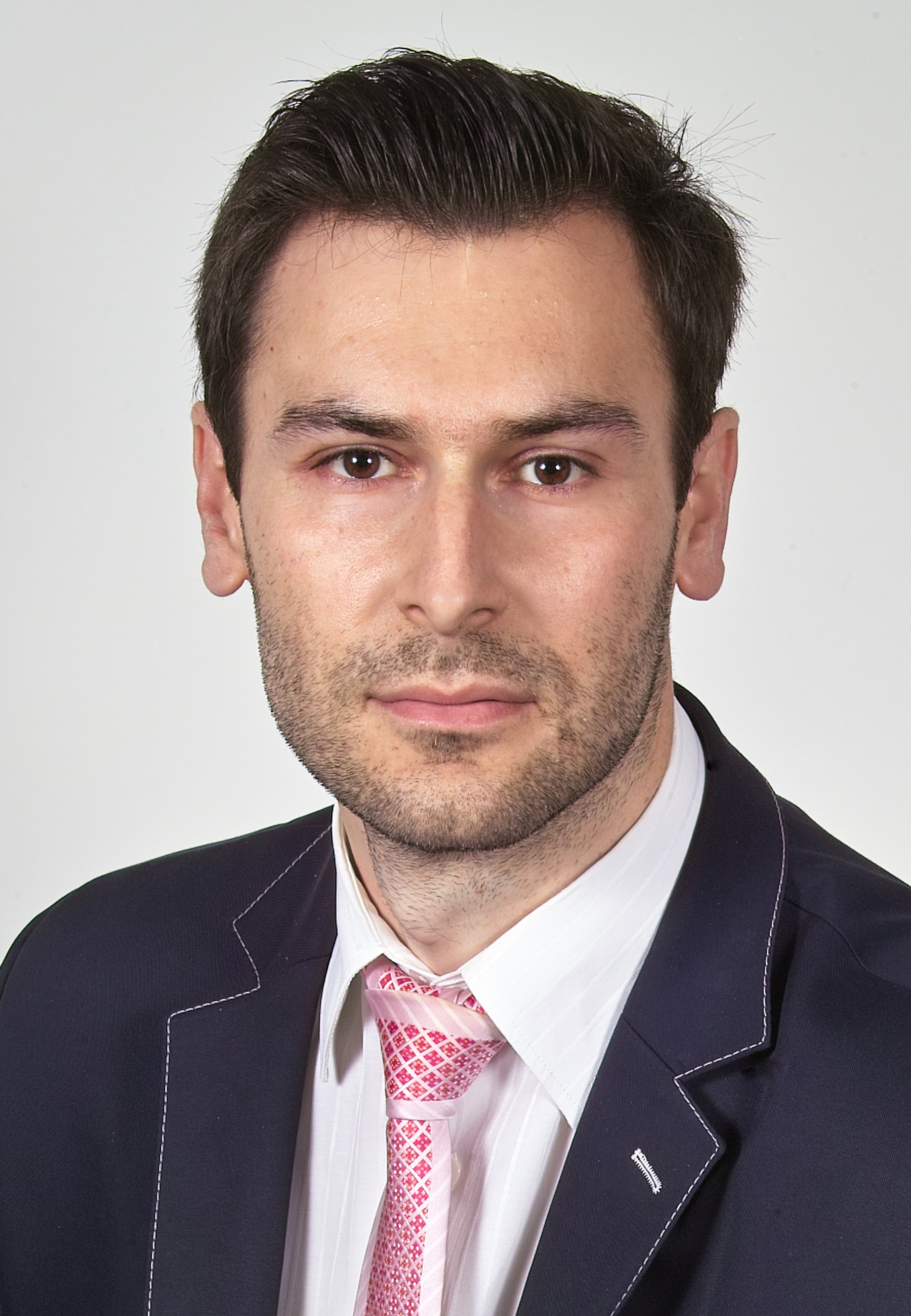
Assoc. prof. Dr. Daniel Halaj
head of the project
He deals with the marketing analysis of the forest wood and non-wood products on the domestic and foreign market, determination of the marketing strategies for forest enterprises in area of the bioeconomic, purchasers’ behaviour of raw timber and forest chips on the domestic and foreign markets and optimization of the forest enterprises’ portfolio in area of the forest ecosystem services. He published several articles in this research areas in CCC, WOS, SCOPUS databases. He was a deputy of the head of several VEGA projects, investigator of the international research programme: Bioenergy from Forests 2007-2011 (METLA – Joensuu, Finland), investigator of European research project: Centre of Excellence (2007-2013), Adaptive forest ecosystems, area: Market with forest services.
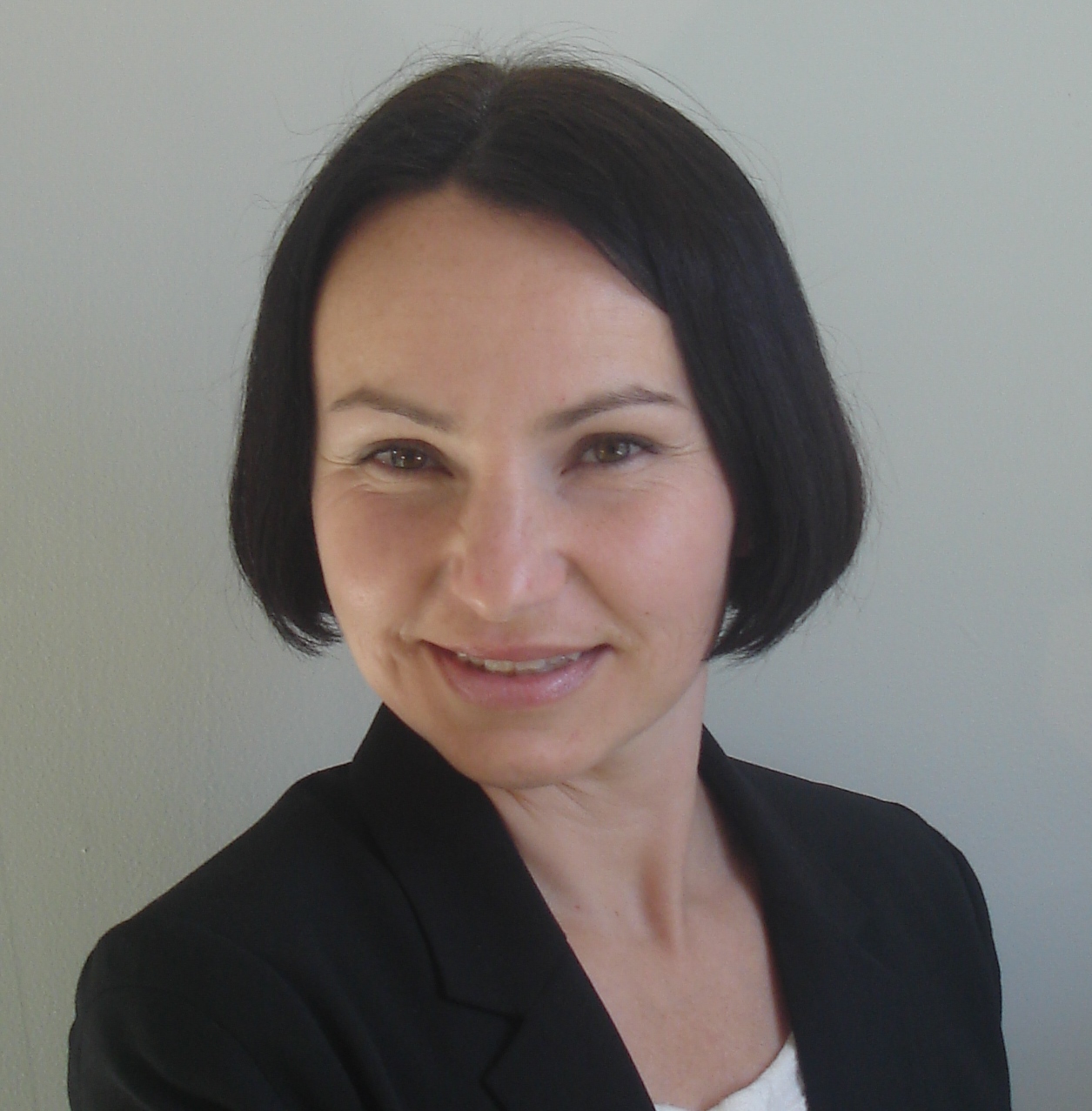
Dr. Yvonne Brodrechtová
project deputy
She currently focusses in her scientific area on the issue of the natural resources assessment and the forest policy. She was the principal and co-investigator of the scientific VEGA and KEGA projects, investigator of the Seventh Framework Programme of the European Union for the research and innovation support „INTEGRAL - Future oriented integrated management of European forest landscapes“, as well as the investigator of the Horizon 2020 project „ALTERFOR – Alternative models and robust decision-making for future forest management“.

Dr. Klára Báliková
investigator
She is a graduate of the doctor study in the study programme forest ecosystem services with the focus on the implementation and evaluation analysis of the economic tools for ensuring of forest ecosystem services. On the present, she deals with the payments for forest ecosystem services in area of the recreational services support.
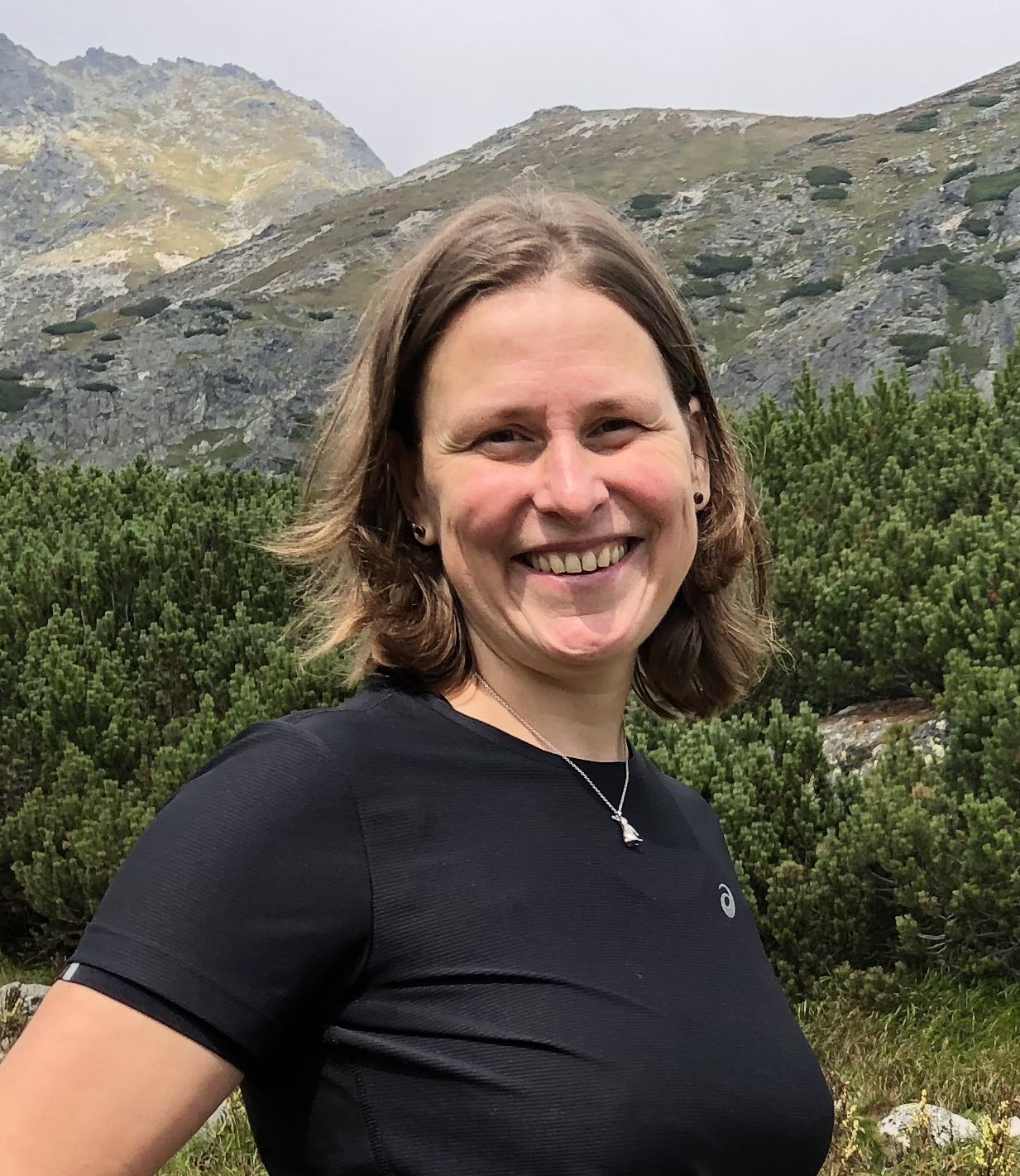
Dr. Magdaléna Pichler
investigator
Her scientific path is focused on the use of the landscape for the tourist traffic, recreation in forest environment as well as finding the frequency of the visits in different regions before and after pandemic (COVID-19). She is a sponsor and co-investigator in several APVV, VEGA and KEGA projects. On the present, she is a sponsor in the scientific project Horizon 2020 with the orientation on the strategies for life enhancement of elderly people by influence of the forest environment.
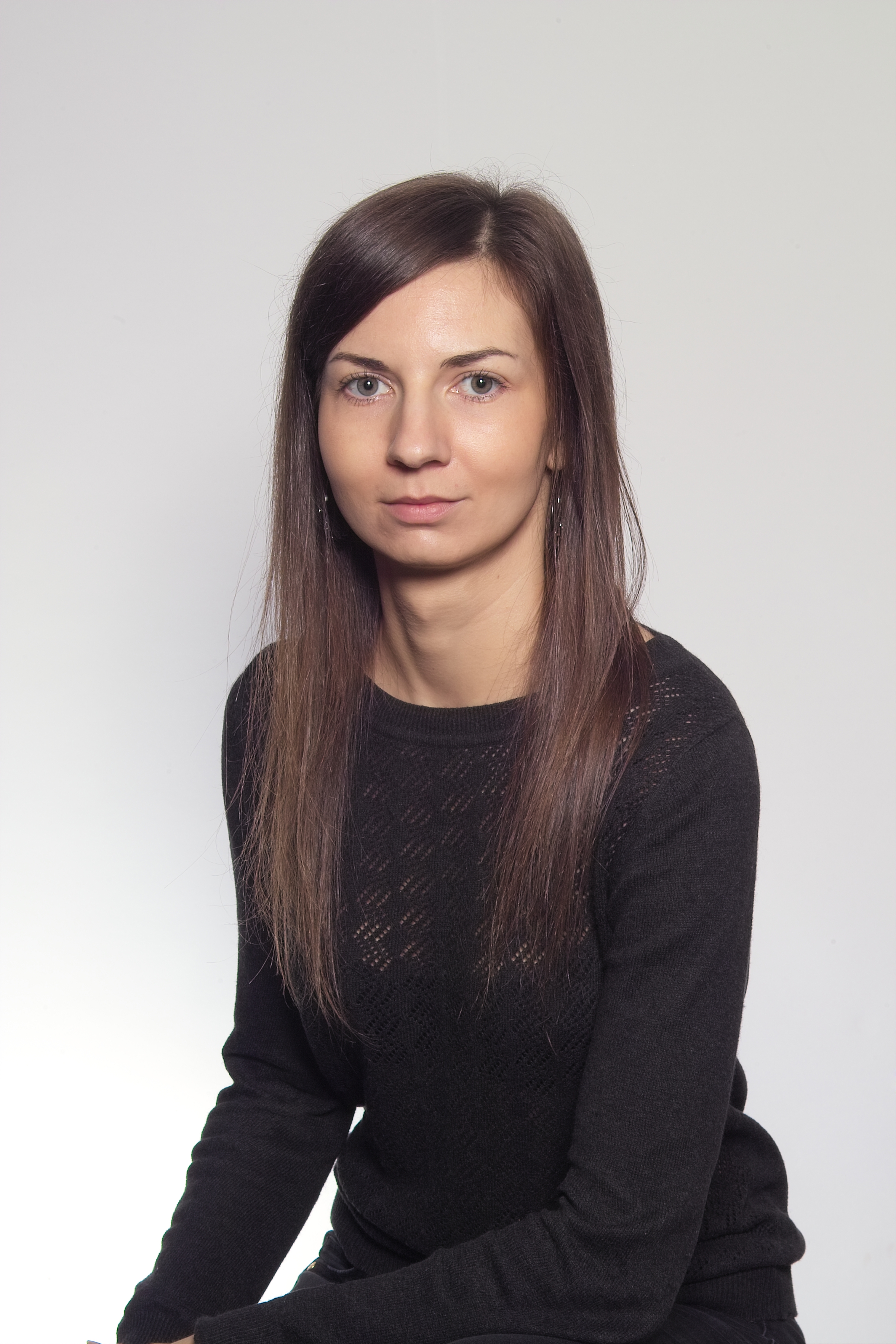
Dr. Martina Štěrbová
investigator
Her scientific orientation is focused on the issue of the innovation behaviour and innovation potential of the enterprises providing services in the Slovakian forestry. On the present, she is a sponsor of VEGA project dedicated to innovation potential of the payments for ecosystem services – “water and forests”.
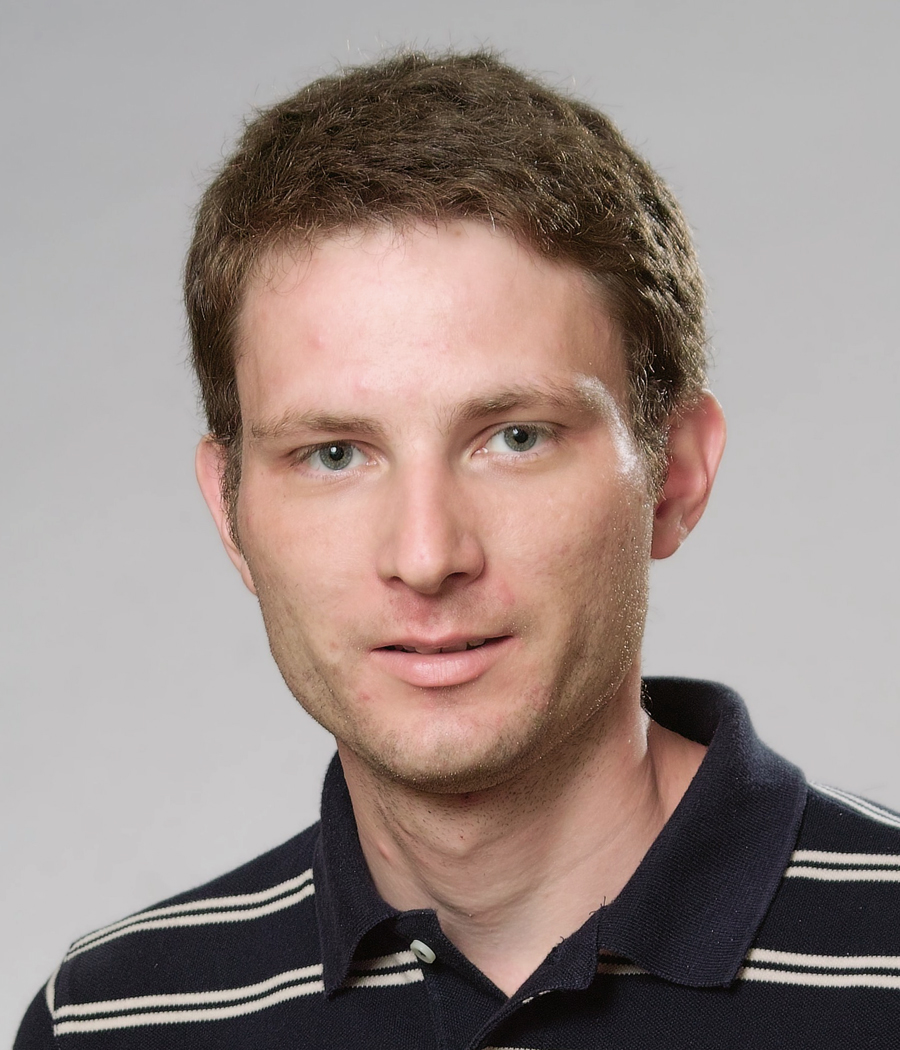
Dr. Ján Bahýľ
investigator
His professional orientation is in area of forest management. He was investigator of international project ALTERFOR within the Horizon 2020 with the focus on the modelling and decision-making support for forests management, investigator of the APVV project with purpose of the modelling of climate changes on wood species growth in forest ecosystems as well as the investigator of the Seventh Framework Programme of the EU “INTEGRAL”.

MSc. Alex Bumbera
investigator
He is a graduate of the Department of Economics and Management of Natural Resources. He is currently an internal doctoral student at the Department of Forestry Economics and Management. In his dissertation, he deals with the issue of marketing modelling of forest ecosystem services in the business portfolios of forest enterprises in Slovakia.

Dr. Michaela Korená Hillayov
investigator
Dr. Michaela Korená Hillayová is a young scientific and research worker under the age of 35. She currently works at the Department of Economics and Forestry Management. In her scientific research work, she deals with the issue of forest ecosystem services and their active support, the analysis of forest management stakeholders and the specific risks of forest management with an emphasis on their impact on the interests of forest management stakeholders.
Estimated work methodology
Determination of supply and demand development scenarios for forest ecosystem services
Recreation and tourism are understood as ecosystem services belonging to cultural ESL (CICES 2018), where ecosystems provide intangible benefits for people (Lankia et al., 2015) and we understand them in relation to the movement of users, as the demand for the service is closely related to the presence of people in ecosystems (Nahuelhueal et al., 2013). We assume that people choose a location for leisure time based on the nature of the natural and cultivated landscape in a given area (MA, 2005) and the role that ecosystems play in maintaining mental or physical health is highly recognized, despite the difficulties in measuring it. (TEEB, 2013). When setting scenarios, they will use the most common qualitative methods in market research, e.g. guided interviews with company management, document analysis (Becerra-Jurado et al., 2015; Lotan et al., 2018) or quantitative methods, e.g. questionnaires (Považan et al., 2015; Schmidt et al., 2016).
Evaluation of hypotheses
Hypotheses will be evaluated using appropriate mathematical and statistical methods. For the use of two-dimensional statistics, the so-called Chi-square test and strength of dependence through Cramer's V-value, etc.
Marketing decision models
Marketing decision models will be used to model the mix of the ESL portfolio in selected forest enterprises and at the same time to evaluate the economic benefit of the scenarios. It is an innovative methodological way of applying given methods for a specific area of forestry (Halaj, 2019). Specifically, the BCG matrix (Meffert et al. 2014; Kotler, Keller 2015), the McKinsey GE matrix (Baran 2007; Baum 2012) and the ABC analysis also called the turnover concentration curve (Jacobs et al. 2010; Wild 2017) will be applied. For the application of the BCG matrix and ABC analysis, data regarding the expected sales for individual ESLs available from the economic activity reports of forest enterprises, from the in-house software WebLES, as well as data processed according to the methodologies for the valuation of cultural services, will be needed. For the application of the GE matrix, data will be needed to quantify the parameters of the competitive position and market attractiveness of individual ESLs through expert evaluations of individual criteria.
Expected results of the work
The expected results of the project can be defined as follows:
- profiling the practical, so-called "user friendly" method of portfolio optimization with regard to non-production forest services for forest enterprises using affordable software solutions
- evaluation of the current state of business portfolios with ESL at forestry enterprises in Slovakia (state forests, municipal and municipal forests of Slovakia)
- evaluation of the impact of the proposed economic, ecological and so-called development scenarios. "business as usual" for ESL positions in portfolios of forestry enterprises in Slovakia
- comparison of the impact of the form of legal personality of forest enterprises (state forests versus municipal and municipal forests), the portfolio of forest land fund (representation of trees, attractive natural locations) on the position of ESL in the portfolios of forestry enterprises in Slovakia
- publication of a study of an international format as part of a comparison and summarization of the results of other case studies in the given scientific field from the mentioned research and educational institutions in selected EU countries (e.g. Germany, the Czech Republic, Finland and Romania)
- dissemination of project outputs in the form of workshops and seminars for the management of individual forest enterprises with the participation of interested stakeholders
Project outputs
Publications
Marketingové modelovanie mixu ekosystémových služieb lesov v portfóliách vybraných lesných podnikov Slovenska
Bumbera, Alex – Halaj, DanielMarketingové modelovanie mixu ekosystémových služieb lesov v portfóliách vybraných lesných podnikov Slovenska. In Setkání ekonomicky zaměřených lesnických a dřevařských kateder z ČR a SR: sborník abstraktů. 2022. s. 14. ISBN 978-80-213-3243-0. VEGA 1/0271/22.
The marketing modelling of the mix of forest ecosystem services with the accent on cultural services under the conditions of the pandemic COVID-19
Halaj, Daniel – Brodrechtová, Yvonne – Báliková, Klára – Pichlerová, Magdaléna – Bumbera, AlexThe marketing modelling of the mix of forest ecosystem services with the accent on cultural services under the conditions of the pandemic COVID-19. In Book of abstracts All-IUFRO conference 2022: Forests in a volatile world – global collaboration to sustain forests and their societal benefits. 2022. s. 9–10. URL: https://www.iufro.org/fileadmin/material/publications/proceedings-archive/all-iufro-conference-2022-abstracts.pdf.
Vzťahy medzi ekosystémovými službami lesa – odborná rešerš
Bumbera, Alex – Halaj, DanielVzťahy medzi ekosystémovými službami lesa – odborná rešerš. In Aktuálne otázky ekonomiky a politiky lesného hospodárstva Slovenskej republiky: zborník prác z vedeckej konferencie. Zvolen: Národné lesnícke centrum – Lesnícky výskumný ústav, 2022, s. 120–129. ISBN 978-80-8093-342-5 .VEGA 1/0271/22 ; ITMS2014+ 313011V465.
Potenciál platieb za ekosystémové služby lesa spojené s vodou
Báliková, Klára – Korená Hillayová, Michaela – Dúbravská, Bianka – Bartalský, Boris – Halaj, Daniel – Dobšinská, ZuzanaPotenciál platieb za ekosystémové služby lesa spojené s vodou. In Aktuálne otázky ekonomiky a politiky lesného hospodárstva Slovenskej republiky: zborník prác z vedeckej konferencie. Zvolen: Národné lesnícke centrum – Lesnícky výskumný ústav, 2022, s. 112–119. ISBN 978-80-8093-342-5 .VEGA 1/0665/20 ; VEGA 1/0271/22.
Teoretické a metodologické postupy projektu VEGA č. 1/0271/22 „Marketingové modelovanie mixu ekosystémových služieb lesov na Slovensku s dôrazom na kultúrne služby v podmienkach pandémie COVID-19“
Halaj, Daniel – Bumbera, AlexTeoretické a metodologické postupy projektu VEGA č. 1/0271/22 „Marketingové modelovanie mixu ekosystémových služieb lesov na Slovensku s dôrazom na kultúrne služby v podmienkach pandémie COVID-19“. In LH a DSP v podmienkach zelenej ekonomiky: zborník pôvodných vedeckých prác. 2022. s. 12–18. ISBN 978-80-228-3358-5. URL: https://kerlh.tuzvo.sk/sites/default/files/zbornik_lh_a_dsp_v_podmienkach_zelenej_ekonomiky_2022_final_0.pdf. VEGA 1/0271/22 ; ITMS2014+ 313011V465.
Contributions
Popularization
Conferences
1. Meeting of departments 2022, 21. – 22.09. a meeting of economic departments and institutes of forestry and woodworking faculties from the Czech and Slovak Republics took place at the castle of the Czech University of Life Sciences in Kostelec nad Černými lesy
2. A tzv. All-IUFRO conference 2022, 21. – 23. September: Forests in a volatile world – global collaboration to sustain forests and their societal benefits
Photodocumentation
21.-22.09. 2022 | Meeting of departments, Kostelec nad Černými lesy, Czech Republic
21.-23.09. 2022 | All IUFRO Conferences Vienna, Austria
Contact us
- Investigative organization:
Technical University in Zvolen
Faculty of Forestry
T. G. Masaryka 24
960 01 Zvolen
Assoc. Prof. Daniel Halaj, Ph.D.











